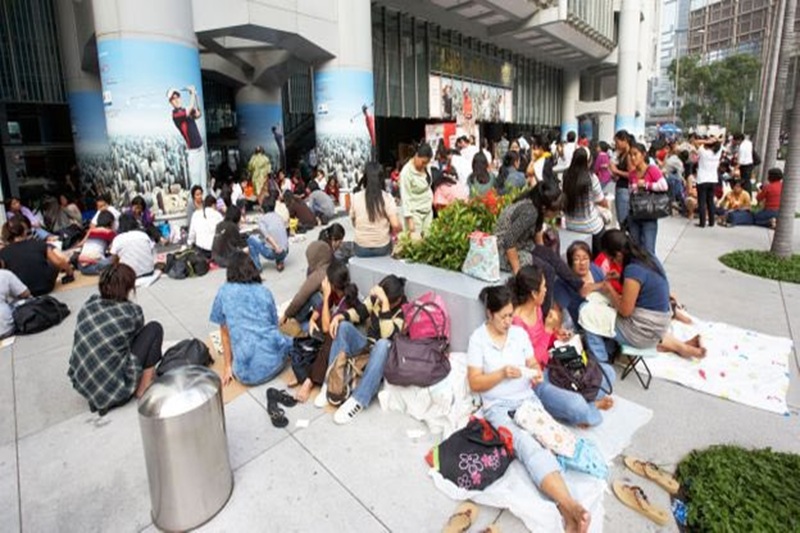
(C): Twitter
Last updated on June 20th, 2025 at 05:48 am
On the eve of International Domestic Workers Day, a coalition of NGOs and pro-establishment lawmaker Edward Leung asked Hong Kong’s government to tighten the regulations surrounding personal loans, especially those concerning foreign domestic workers. Chrystie Lam, president of the Coalition of Global Home Service Sustainable Development, warned about “excessive borrowing” among helpers as a result of unlimited access to unsecured loans from licensed moneylenders.
What Reforms Are Being Suggested?
Lam suggested limiting monthly repayments to 30% of a worker’s salary and setting loan terms at the remaining portion of the worker’s contract. She also recommended that no loans be made if a contract has fewer than six months remaining. Such reforms were intended to reduce the negative impact of debt burdens on domestic workers who, as the only wage earners and having incurred significant debt borrowing money to pay recruitment fees, were in a substantial amount of debt before they even began working.
Are Teenagers Also at Risk?
Leung also emphasized that adolescents are particularly affected by online lending sites and pointed to wider concerns about regulation and financial literacy more broadly. Young people who request loans from these lenders are usually getting stuck in a debt trap, but they are also being exploited by online lenders who are avoiding traditional protections.
Is the government taking action?
Financial Secretary Christopher Hui recently announced that the government would be running a public consultation on loan regulations, expected to start in June 2025. While no specific launch date has been announced, the urgency is indicated by a rise in the number of complaints (109 in 2023 to 214 in 2024) in relation to lending practices.
Why Is This an Expanding Crisis?
Many domestic workers become victims of unlicensed online lenders who charge exorbitant interest and harass them. Recruitment debt, family pressure, and unregulated lending create a financial bind that advocacy groups say must be focused on immediately.







